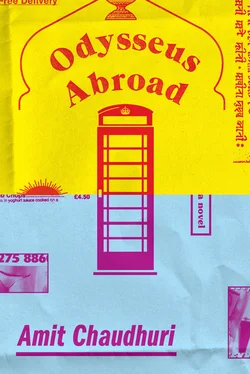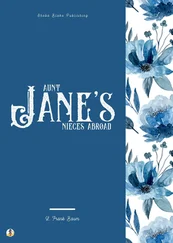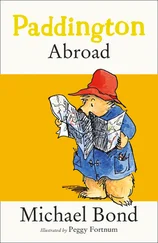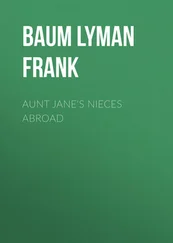“Let’s go,” said Ananda.
“Yes, we can walk to Euston — to Ambala Sweets,” said his uncle.
“To Ambala Sweets now?”
“Yes, to get a few things. Their samosas are tremendous.”
But Ananda wasn’t passionate about samosas. As for sweets — he hadn’t inherited the overpowering sweet tooth gene from his uncle or his mother. In fact, Indian sweets in England invariably disappointed him — they had a vital ingredient missing: it might well be the ghee that lacked flavour. He knew what lay behind the plan. His uncle was gearing up to visit Warren Street — and he couldn’t return (every visit to the studio flat, given it was occupied by family, by Ananda and sometimes Khuku, was for his uncle a homecoming) except bearing gifts. Even when he was a young man (Khuku had told Ananda), he was repeatedly, almost inadvertently, generous, and never came back to Sylhet from a trip without a sari. She used to be touched by this to the core because apparently there was no one else in the family aware that she’d become a young woman. That’s why, now, in London — in spite of the fights they had — she’d forget his idiotic insults with infuriating rapidity.
The reason he came loaded with gifts was complicated. When Ananda came to London with his parents in 1983 to start at university, his uncle was in his “I’m a no-good vagabond; Satish is the managing director” mode; so, whenever they ate out in the first two weeks of term, there would be Radhesh, tagging along as he did in the fifties, when he was impecunious and a satellite of the two. Freeloading daily into the small reserves of pounds sterling Ananda’s father had kept aside for his son’s upkeep. Unable to confront her brother, Khuku had confided in Basanta, a family friend who lived in Pinner. “What do we do with Dada?” Basanta breached the confidence and had a word with Radhesh. So Radhesh reached Warren Street that evening fuming, carrying two bags of groceries. “You think I want your company?” he’d said to his shocked audience. “I don’t need you at all! I visit you because you need my company.”
With some firefighting, that episode needed no further mentioning. But his uncle mostly visited carrying something. Usually stuff he’d long wanted to eat and hadn’t had a chance to and would once he was hungry. Or even a packet of chicken liver he’d encourage Khuku to cook at once. Or, in her absence, samosas. Too many of them.
—
They went down the Euston Road — one of those stretches that was made for neither man nor animal, just the passing car. If there had been a spell of rain, it would have felt doubly inhospitable, but even on a summer’s day that showed no sign of ending the road wasn’t welcoming.
“Spare change please.”
Norman Tebbit’s father: never did he presumably beg. He got on his bike and scoured the town for work. Luckily he didn’t lose the bike, like the man in the Italian movie. This young man now, absorbing the sunshine, had thrown his words out on an off-chance. He wasn’t terribly interested in the response. His uncle stopped, saying: “One minute.” He turned, and, with slow strides, wove back. Stooping, he gave the man something. Shuffling back unhurriedly, he rejoined Ananda.
“How much?”
“Sorry?”
“How much did you give?” asked Ananda, as to a delinquent who erred recurrently.
“Oh nothing.” He ducked his head slightly. “A pound.”
Ananda shook his head in resignation.
Yet his uncle looked put out; annoyed, even.
“He didn’t say anything. Not even a Thank You. There was a time when beggars said God bless.”
So that’s what it was! Too bad. But hadn’t Jesus said (for his uncle admired and even identified with him; he’d once revealed to Ananda, at once tongue-in-cheek and completely without irony, “I am Jesus Christ”) — hadn’t he said, “When you give to the needy, do not let your left hand know what your right hand is doing, so that your giving may be in secret. And your Father who sees in secret will reward you”? When Ananda had read this, he’d thought of his uncle — how he hungered deeply for his virtues to be recognised, and how too he led a life indifferent to approbation. Ananda had also been impressed by Jesus’s clarity. Christ was more than a populist preacher of love. That was clear from the retort: “Render unto Caesar”—or was it Thatcher—“the things that are Caesar’s, and unto God the things that are God’s.”
But wasn’t his uncle human and shrewd, and wouldn’t his left hand be entitled to a degree of awareness of what the right hand was up to? Wasn’t it expected — especially in one so solitary — that he might be often assigning value to his own actions? Who knows — maybe it wasn’t enough for him for God alone to know of his small acts of empathy.
—
Past Euston Station they were, without much forewarning, at the sweet shop entrance; inside, a bunch of Indians flocked at the counter, abiding by no queue. The room held a strong suggestion of kesar .
On the tray in Rangamama’s line of vision, flanked by neat diamond-shaped stacks of barfi on the left and some member of the great gulab jamun family on the right, and above another tray on the lower tier of pallid attempts at Bombay halwa, were exorbitant saffron-coloured laddoos. Motichur ladoo, a label said. My ass, thought Ananda. From Wembley, most likely.
“Pupu, look at those magnificent laddoos! Durdanto !”
Ananda had an inkling of doom that these were now destined to come his way, to be added to his kitchen paraphernalia.
“Should we get some of these?”
Since they were, in theory, intended for him, Ananda felt free to half-heartedly fend them off. “Don’t. They’re fakes. They’ll be nothing like the original.” It was the tragedy of London — to eat Indian food outside of the “curry” and to constantly discover the unfamiliar in the familiar: dosas that looked like but didn’t taste like dosas, bhelpuri that resembled bhelpuri but was something else. Not that he cared for the mythology of the laddoo. He had no idea why they were distributed jubilantly at North Indian celebrations. They were more a metaphor, a conceit, rather than a viable sweet. Their prestige had no explanation.
“Pupu he , I think you’re wrong — I think we should try them. We have gulab jamun all the time.” He wanted them. He’d probably never tasted a real laddoo in his life. After all, he’d never been to Delhi or Lucknow — he’d come to London straight after his youth in Shillong. He looked on with contained longing as six were arranged in a box: over-rich, oily orbs, flecked with pistachio. From his jacket pocket he took out an exactly folded Budgens bag and slipped the box in. He slid the bag across a wrist. Hand gloved in his right-hand pocket, the bag swinging imperceptibly, they made for Warren Street.
Ananda’s mind went back to the woman circling around King’s Cross. How many “jobs” did she do in a day? Where? Or maybe his uncle was wrong — maybe she wasn’t that kind of a woman. He’d once seen someone like her in front of Warren Street tube station: tall, with an overlarge body being shown off via a shoulderless top and mini skirt. Dressed like that in November. Ananda had noted her confused and visible air of incongruousness and expectancy; he’d glanced again, and (in the course of the second look) her unique calling had dawned on him. Instantly he’d thought, I could be wrong. She might be waiting for a friend . Anyway, he’d found neither her nor, today, the King’s Cross woman interesting. He’d have to make a major effort of the imagination to want them. Moreover, he suspected that they might, by now, loathe sex. The brisk businesslike indifference that followed soon after the initial flirtatiousness of the two women in Bombay had swamped any confidence he might have had in the performance. Besides, he was terrified of this cruelly misnamed virus. It was largely exclusive to heroin-injectors and homosexuals, but “largely” was the operative word. It had placed the King’s Cross woman and her ilk forever out of bounds.
Читать дальше











